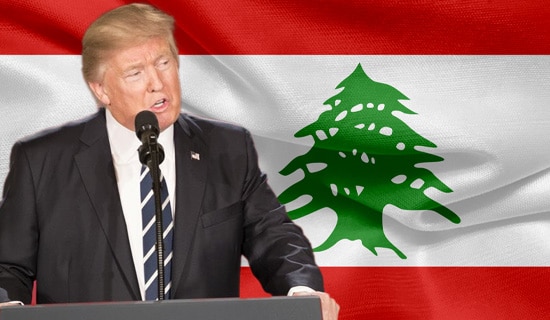In an editorial posted on the reformist website Middle East Transparent on July 17, 2006, five days after the outbreak of the war in Lebanon, site editor Pierre Akel warned that Hizbullah's ultimate aim was to topple Lebanon's elected government headed by Prime Minister Fuad Al-Siniora. He said that Hizbullah was trying to replace it with a new government that would be favor of Lebanese President Emile Lahoud and would reinstate "Lebanon's vassal relationship with Syria." This, he said, would be the end of Lebanon's democracy and the beginning of a "mullah-cracy," which he argued would spark a new civil war in Lebanon.
On October 16, 2006, Akel published a follow-up article, in which he pointed to the accuracy of his earlier predictions.
The following are excerpts from the October 16, 2006 article, in the original English:[1]
Hizbullah's Ultimate Goal is to Topple Lebanese Democracy
"The summer war between Hizbullah and Israel started on July 12, 2006. In an editorial dated July 17, on the Arabic page of Middle East Transparent, I wrote the following:
"'For the last few days Hassan Nasrallah and his deputy, Naim Qassem, have been declaring that "it would be better for the Israelis to put an immediate end to the current clashes and to accept the principle of prisoner exchange"! Israel's reaction has been to wage an unrestrained war against Hizbullah and against Lebanese civilian infrastructures alike. Which means that the Israeli reaction has obliged Hizbullah to enter into a decisive battle prematurely...
"'Hizbullah's attack should not be [regarded] in the context of the Arab-Israeli struggle. Rather, it should be viewed in the context of internal Lebanese politics... and in the context of Lebanon's relations with Syria and with Iran.'
"[I further wrote:] 'What were the aims of Hizbullah's attack [on Israel]...? Was it Hizbullah's intention to merely capture two Israeli soldiers? Or was the real intention to start a "coup d'état"... which would allow it, in the end, to seize power in Lebanon itself ?
"'Does Hizbullah's plan (which shall certainly make use of the "nationalistic" and "Islamic" prestige of a successful attack against the Israeli forces) include a "march on Beirut" with the aim of toppling the elected Siniora government [using] a mixture of [military] and political pressure, aided by President Emile Lahoud, who would sign a "decree" ending the mandate of the present government and replacing it with a new pro-Lahoud government that would reestablish Lebanon's vassal relationship with Syria, noting that Syria itself has entered into the Iranian orbit lately?'"
A Hizbullah Coup Against Al-Siniora's Government Will Be the Beginning of a "Mullah-cracy" in Lebanon
"And finally, [I wrote]: 'Was [this] "Fascist Scenario" – [which is] a repetition of Mussolini's March on Rome – the scenario adopted by Nasrallah and his Syrian and Iranian partners?... If Hizbullah's "coup d'état" is realized, then it will, in reality, be a "coup d'état" against the 1943 Convention (which was the basis of Lebanon's independence) and against the "Taif Accord" (which put an end to the Civil War). [This] amounts to saying that it would be a "coup d'état" against the liberal democratic regime and the starting point of a "mullah-cracy" in Lebanon. Such a "mullah-cracy" will [surely] spark a new civil war and [lead] to the division of Lebanon into [ethnic] mini-states.'
"That article, written five days from the start of heavy Israeli raids all over Lebanon [sparked] controversy. Many pseudo-liberals and pseudo-progressives rejected its 'pessimistic' analysis and expressed their dismay, in particular, at the use of the term 'fascist' to describe Hassan Nasrallah. Inevitably, there [also] had to be some pseudo-Marxists [who] pointed out that Fascism was a "European phenomenon of the 1930s" which could not recur in a totally different, Lebanese context!
"Five months later, this pessimistic scenario is unfortunately proving to be true, to the letter. The Hizbullah and Amal ministers left the Lebanese government when the ruling majority [refused to] accept their 'ultimatum', [namely, that] Hizbullah and its allies [must receive] 'one third of [the cabinet]' – which means [giving] a minority [i.e. Hizbullah and Amal] a veto power over all government decisions...
"When the Lebanese government went ahead to approve the U.N. International Court proposal for Lebanon (regarding the Al-Hariri assassination case), the Syrian-appointed President Lahoud declared that the Siniora government has become illegitimate, since the Shi'ites are no longer represented in it.
"Now, Nasrallah is giving his supporters 'assurances' that a 'clean government' will soon be established... Yesterday, Iran's Ayatollah Khamenei predicted that U.S. Imperialism will be defeated in Lebanon!
"The background to the [current] Hizbullah-Syria-Iran offensive is easy to guess: the defeat of the Republicans in the recent U.S. elections and the possible withdrawal of U.S. forces from Iraq. [In this situation], the anti-Hizbullah forces in Lebanon are in a less advantageous position, but certainly not in a desperate position. Remember, on March 8, 2005, Nasrallah rallied 300,000 supporters in the center of Beirut [when he] declared his loyalty to the Syrian dictator. At the time, 30,000 Syrian soldiers were still occupying the country. Yet six days later... more than one million Lebanese marched on Beirut to crush Hizbullah's attempt to keep the country under [Syrian] occupation.
"It seems that Hassan Nasrallah's party is ready to play all its cards in its [thinly] disguised 'coup d'état.' Hizbullah claims to have more than 20,000 missiles and thousands of Iranian-trained fighters. It has been strengthened by its alliance with General Michel Aoun, who seems ready to sacrifice the republic [in order to become] president. [Yet] the inherent weakness of Nasrallah's position is still there...
"Even if the U.S. forces leave Iraq, the Lebanese majority has only one option: to resist Hizbullah's fascist 'coup d'état' and... to win. For a people which is still suffering from the consequences of 30 years of civil war and foreign occupations, the novelty is that a large majority of the Lebanese has come to believe in a civil, unarmed struggle. The Lebanese majority does not want to go back to the black days of bloodshed and destruction. That is the real challenge for the people of Lebanon and for the region."
Endnote:
[1] http://www.metransparent.com/texts/pierre_akel/pierre_akel_hassan_nasrallah_s_planned_coup_d_etat_fascist_style.htm. The text has been lightly edited for clarity.








